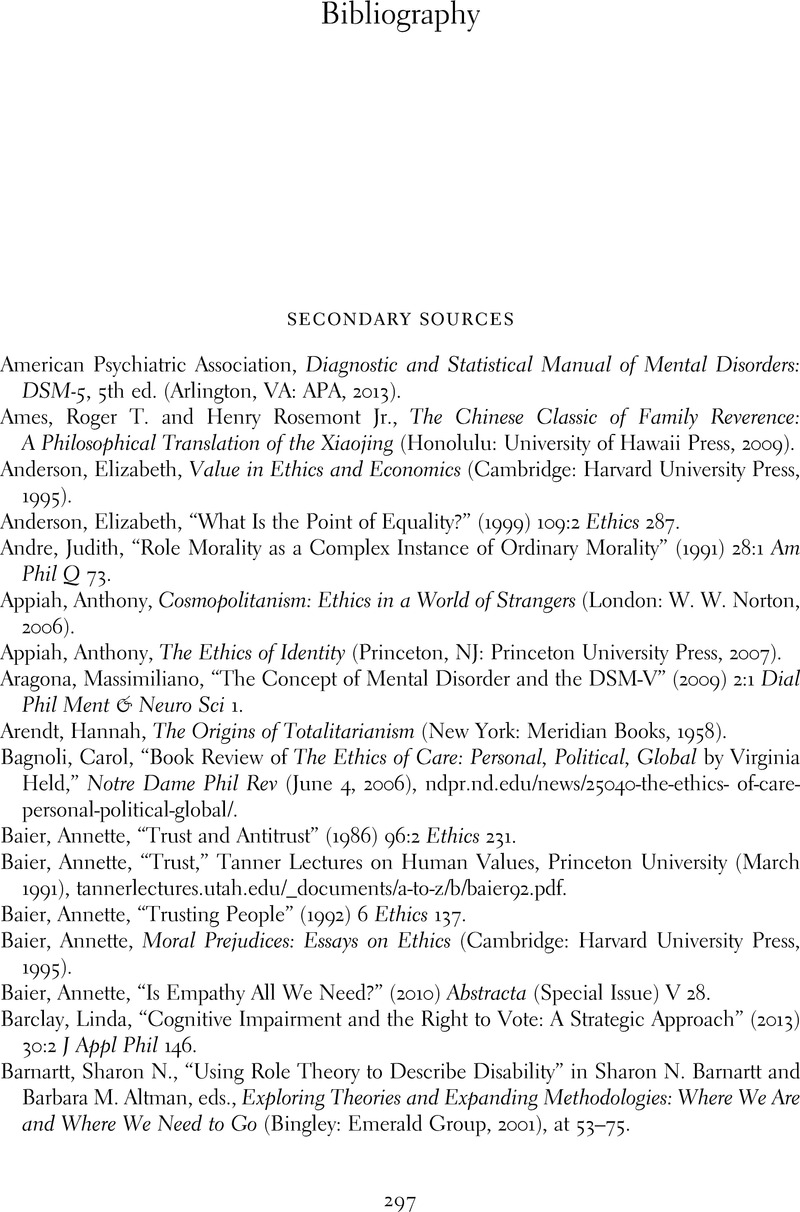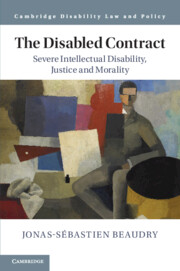Book contents
- The Disabled Contract
- Cambridge Disability Law and Policy Series
- The Disabled Contract
- Copyright page
- Dedication
- Epigraph
- Contents
- Foreword
- Acknowledgments
- 1 Severe Intellectual Disability and the Social Contract
- 2 Inclusive Contractarianism
- 3 The Capacity to Trust as a Contractual Basis for Robust Moral Status
- 4 People with Severe Intellectual Disabilities as Active Citizens
- 5 People with Severe Intellectual Disabilities as Passive Citizens
- 6 Other-Regarding Concern and Exploitation
- 7 Beyond Contractual Relations
- Bibliography
- Index
- References
Bibliography
Published online by Cambridge University Press: 15 March 2021
- The Disabled Contract
- Cambridge Disability Law and Policy Series
- The Disabled Contract
- Copyright page
- Dedication
- Epigraph
- Contents
- Foreword
- Acknowledgments
- 1 Severe Intellectual Disability and the Social Contract
- 2 Inclusive Contractarianism
- 3 The Capacity to Trust as a Contractual Basis for Robust Moral Status
- 4 People with Severe Intellectual Disabilities as Active Citizens
- 5 People with Severe Intellectual Disabilities as Passive Citizens
- 6 Other-Regarding Concern and Exploitation
- 7 Beyond Contractual Relations
- Bibliography
- Index
- References
Summary

- Type
- Chapter
- Information
- The Disabled ContractSevere Intellectual Disability, Justice and Morality, pp. 297 - 306Publisher: Cambridge University PressPrint publication year: 2021



